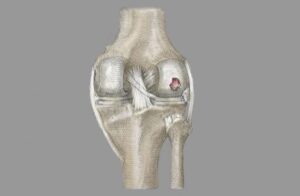In the ever-evolving landscape of healthcare administration, medical billing jobs have emerged as a vital component of the industry. This article provides a comprehensive overview of medical billing jobs, shedding light on the roles, responsibilities, and growing demand for skilled professionals.
Understanding Medical Billing:
Medical billing is a crucial aspect of healthcare revenue management, encompassing submitting and following up on claims with health insurance companies to receive payment for services rendered by healthcare providers. Professionals in this field are pivotal in ensuring that healthcare facilities receive accurate and timely service reimbursement.
Medical Billing Jobs: Roles and Responsibilities
Medical Billing Specialist:
Billing specialists are the frontline warriors in navigating the complex realm of healthcare billing. Their responsibilities include accurately coding medical procedures, preparing and submitting claims to insurance companies, and resolving billing discrepancies.
Billing and Coding Compliance Officer:
Ensuring compliance with coding regulations and standards is paramount in the healthcare industry. Billing and coding compliance officers oversee the implementation of coding practices to guarantee adherence to industry guidelines and prevent legal issues.
Education and Training:
To embark on a successful career in medical billing, individuals typically need a combination of education and practical training. Many professionals pursue certifications such as Certified Professional Biller (CPB) or Certified Professional Coder (CPC) to enhance their credentials and stand out in the competitive job market.
The Growing Demand:
The demand for skilled medical billing professionals is on the rise, driven by factors such as the aging population, changes in healthcare regulations, and advancements in medical technology. Healthcare providers seek qualified individuals to streamline revenue cycles and ensure financial sustainability.
Medical Billing Jobs: Career Advancement Opportunities
Senior Billing Analyst:
Experienced professionals may advance to senior billing analysts, taking on more complex billing processes and overseeing a team of billing specialists.
Revenue Cycle Manager:
The role of a revenue cycle manager involves strategic planning and execution to optimize the entire billing and reimbursement process, ensuring efficiency and maximizing revenue.
Remote Opportunities:
The rise of technology has paved the way for remote work in medical billing. Many organizations now offer remote positions, allowing professionals to work from the comfort of their homes. This flexibility has opened up new opportunities for individuals seeking a work-life balance.
Medical Billing Coordinator:
Medical billing coordinators oversee the day-to-day operations of the billing department, ensuring that billing processes are efficient and accurate. They may also collaborate with other departments to address billing-related issues and implement improvements.
Medical Billing Auditor:
Auditors in medical billing are responsible for reviewing billing records to ensure compliance with coding and documentation standards. They are crucial in identifying errors, discrepancies, or fraudulent activities, helping healthcare organizations maintain integrity in their billing practices.
Claims Adjudicator:
Claims adjudicators work closely with insurance companies to review and process claims healthcare providers submit. They analyze claim details, verify patient information, and determine the appropriate reimbursement amount based on the insurance policy terms.
Denials Management Specialist:
Dealing with claim denials is a common challenge in medical billing jobs. Denials management specialists focus on identifying the reasons for claim denials, rectifying errors, and resubmitting claims to ensure maximum reimbursement for healthcare services.
Medical Billing Trainer:
As the field of medical billing evolves, there is a growing need for professionals who can train and educate others in the intricacies of billing processes. Medical billing trainers develop training programs, conduct workshops, and keep staff updated on industry trends and regulations.
Medical Billing Customer Service Representative:
Customer service representatives in medical billing act as a bridge between patients, healthcare providers, and insurance companies. They assist in resolving billing inquiries, explaining charges to patients, and ensuring a positive experience throughout the billing process.
Health Information Manager:
Health information managers are crucial in overseeing the organization and security of patient information, including billing records. They ensure compliance with data privacy laws, implement electronic health record systems, and manage the efficient flow of health information within the organization.
Medical Billing Software Developer:
With the increasing reliance on technology in healthcare, there is a demand for professionals who can develop and maintain specialized medical billing software. These developers create user-friendly interfaces, ensure data accuracy, and implement features that enhance the efficiency of billing processes.
Medical Billing Consultant:
Consultants in medical billing provide expert advice to healthcare organizations seeking to improve their billing practices. They conduct assessments, identify areas for improvement, and offer strategic recommendations to optimize revenue cycle management.
Patient Financial Counselor:
Patient financial counselors assist patients in understanding their medical bills, insurance coverage, and available financial assistance programs. They work to ensure that patients are well-informed about their financial responsibilities and help them navigate the billing process with clarity and confidence.
Also Read:
Challenges in the Field:
While medical billing jobs offer rewarding career paths, there are challenges that professionals may encounter. Dealing with evolving healthcare regulations, complex billing software, and managing the intricacies of insurance claims can be demanding. However, these challenges also present opportunities for continuous learning and professional growth.
Conclusion:
In conclusion, medical billing jobs are essential for the financial stability of healthcare facilities and provide individuals with promising career prospects. As the healthcare industry continues to evolve, the demand for skilled professionals in medical billing is expected to grow. Whether you’re considering entering the field or looking to advance your career, understanding the nuances of medical billing can open doors to a fulfilling and lucrative profession in healthcare administration.









